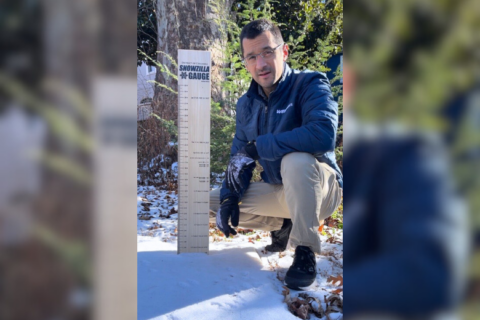
2023 was a great year for me, despite starting it with stage 4 lung cancer.
By now you know, after one-pill-a-day targeted therapy, and a robotic-assisted lobectomy, I’ve been cancer-free since the end of April.
But, what’s in store for 2024?
In a few weeks I’ll have a new type of test for the first time — a liquid biopsy — that can provide some clues of what my future treatment, and perhaps prognosis, will be.
Scientists and doctors have long said that stage 4 lung cancer isn’t curable, but within the last decade it’s becoming increasingly treatable.
Lung cancer is the leading cause of cancer deaths in the United States, with one of the lowest five-year survival rates, because cases are often diagnosed at later stages, when the disease is less likely to be curable.
However, recent improvements in personalizing treatments to a person’s exact type of cancer are helping people live longer, and with a better quality of life.
According to the American Lung Association’s “State of Lung Cancer 2023” report, “The national average of people alive five years after a lung cancer diagnosis is 26.6%, which is a 22% improvement over the last five years.”
Current research shows that while my particular kind of cancer mutation, positive for the epidermal growth factor receptor, or EGFR, reacts well to the targeted therapy, there’s also a high likelihood of cancer recurrence, when the targeted therapy stops working.
I have to keep reminding myself that my treatment may change, in the near or distant future, since my current side effects from a daily pill of osimertinib have been so minimal: acne-like rash, cracked skin on my fingertips and the need for a daily nap.
Shortly after my lobectomy, in April 2023, when I became NED — no evidence of disease — my oncologist recommended that my “surveillance plan will be similar to someone with active cancer, given that we have to remain vigilant.”
So far, that vigilance has consisted of a CT scan every three months, and monthly blood work to ensure that I’m tolerating osimertinib, which has the brand name Tagrisso.
The CT scans, which can find lesions as small as two or three millimeters, have all been great, showing no new areas of concern in my lungs or elsewhere in my body.
What is a liquid biopsy, and why have one?
My EGFR diagnosis was based on biomarker testing of a tiny piece of tumor tissue from my left lung, taken during a bronchoscopy in November of 2022. The liquid biopsy, which is simply a blood test, will be a “where are we today, and should we be making changes for tomorrow” snapshot of my current biomarkers.
When a cancerous tumor is active, it sheds into the bloodstream, which often spreads — or metastasizes — to lymph nodes or other parts of the body.
Despite the effectiveness and typically less severe side effects of targeted therapies, compared to chemotherapy, tyrosine kinase inhibitors (TKIs) eventually stop working.
Remaining cancer cells can change as they continue to grow — often called a rearrangement, fusion or amplification — which makes them resistant to the TKI.
That’s why I’m having the liquid biopsy: to see whether there are still cancerous cells in my bloodstream, and whether they have become altered from my original diagnosis, of EGFR 19 deletion, because that would indicate a higher likelihood of recurrence and spread, either in my lungs or other parts of my body.
So, that’s my resolution for 2024 — to aggressively monitor real-time changes in my DNA, through liquid biopsies, even before any areas of concern might show up on a CT scan.
While the thought of cancer returning is scary, the good news is resistance to TKIs is so common that lots of clinical trials are testing ways to treat lung cancer after resistance.
In some cases, a small tumor or two can be removed with surgery or radiation. In the event of more prevalent spread, in addition to chemotherapy, other options would include repeating biomarker testing, to see if a new tumor had a different targetable mutation, as well as immunotherapy.
I’m looking forward to a happy, healthy 2024, enjoying my family, friends, my 27th year at WTOP, and being a good patient, all while learning more about my lung cancer and remaining hopeful about the new treatments that are just around the corner.
Get breaking news and daily headlines delivered to your email inbox by signing up here.
© 2024 WTOP. All Rights Reserved. This website is not intended for users located within the European Economic Area.








